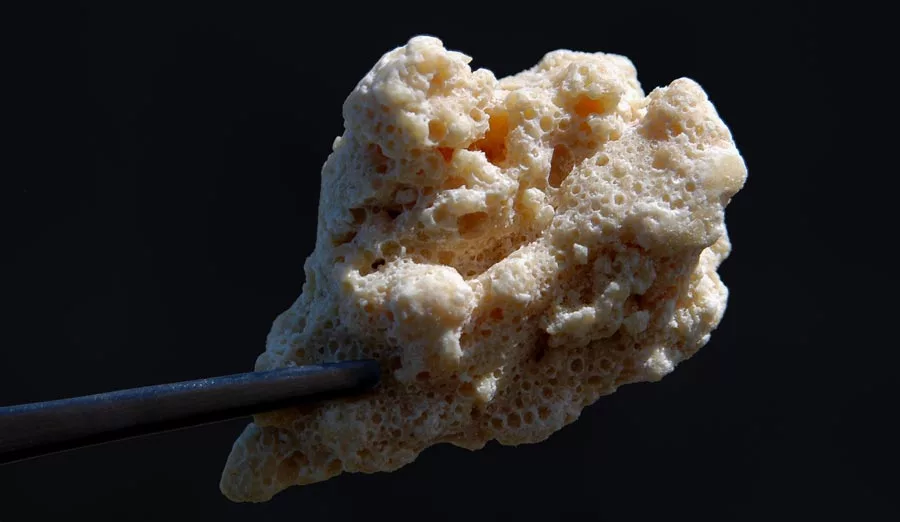What Is Crack Cocaine?
Table of Contents
- What Is Crack Cocaine?
- The Basics of Crack Addiction
- Drug Addiction And Mental Health
- What is the Crack Rehab Success Rate?
- Reasons for Hope in Crack Addiction Treatment
- How To Help Someone With A Crack Addiction
- What Does A Crack Cocaine Addiction Treatment Look Like?
- Behavioral Therapies For Crack Addiction
- Maintaining Recovery And Abstinence After Rehab
- Finding A Treatment Center
- Medically Reviewed By
Cocaine can come in different forms. Powdered cocaine is typically snorted or injected, whereas crack is a crystal form of cocaine that is heated and smoked. It can come in solid blocks or crystals and can be yellow, pale rose or white in color.
The primary method of consumption for crack is typically smoking it and the popping sound it makes when it is heated is where its name comes from.
Keep reading to find out more about what makes an effective crack rehab setting and how to get help today!
The Basics of Crack Addiction
Crack is the purest and most potent form of cocaine which also makes it more dangerous and addictive than cocaine. It reaches the brain quickly and produces an intense and immediate high which usually lasts no more than 15 minutes.
After this high wears off, an individual begins craving more. Ingesting crack is already inputting a large amount of toxins in the body of an individual. Taking in more before the body has had a chance to eliminate some can lead to dangerous situations.
Cocaine does not have a current medication that is used for treatment however, medication and research on addiction are constantly being developed. There are some medications that are used in other addiction treatments that have shown to be beneficial for cocaine addiction.
There is also a cocaine vaccine being developed to better support individuals fighting against the substance. The vaccine supports the immune system by creating cocaine-specific antibodies that attach to cocaine and prevent them from reaching the brain.
Overall, crack cocaine addiction is a stimulant addiction and behavior treatment makes up the majority of the current treatment.
Side Effects Of Crack Cocaine Use
Crack abuse can lead to a multitude of negative experiences including a decreased health, social, and mental experience. Long term crack cocaine use can also lead to permanent psychological damage within the brain.
Some of the side effects of crack include:
- Euphoria
- Mental alertness
- Hypersensitive physical senses
- Irritability
- Extreme paranoia
Many of the health side effects of crack cocaine result in physical symptoms of the body’s health which include:
- Constricted blood vessels
- Dilated pupils
- Nausea
- Raised body temperature and blood pressure
- Fast or irregular heartbeat
- Tremors and muscle twitches
- Restlessness
Long term effects of smoking crack cocaine specifically include lung and respiratory issues. These long term effects can lead to a declining daily experience and possibly difficult health issues.
Crack Withdrawal Symptoms
The withdrawal symptoms of crack cocaine can be very intense, relapse provoking, and even dangerous for an individual. There are many psychological symptoms which make it increasingly difficult for an individual to manage.
Some of the withdrawal symptoms of crack include:
- Intense cravings
- Paranoia
- Insomnia
- Depression
- Anxiety
- Irritability
- Extreme fatigue
- Nightmares
Can You Overdose On Crack?
Yes you can overdose on crack. Crack abuse can lead to a buildup of toxins within the body and an inability to process large amounts of them. Some of the health side effects listed above are minor toxicity within the body.
Major toxicity within the body can lead to drastic health effects including:
- Coma
- Cardiac arrest
- Respiratory failure
- Loss of vital functions
An overdose is also likely to happen when mixing other drugs together alongside crack. Individuals may do this to achieve a more intense high however, it places the individual’s life at a high risk.
As the body is already struggling to properly process one substance, introducing more substances into the body can lead to bodily dysfunction and many severe health issues, depending on the substances used.
Drug Addiction And Mental Health
There are many factors that can lead an individual to substance abuse and drug addiction. This includes individuals struggling with mental health disorders. Individuals with mental health disorders are more likely to develop an addiction to a substance.
Mental health disorders are psychiatric conditions that inhibit the thinking, feeling, mood, behavior, and perception of an individual. It is important for an individual struggling with a mental health disorder to receive treatment for their experience.
As crack cocaine has a high potential for drug abuse, an individual is more likely to develop an addiction. Some of these individuals may develop a substance use disorder. Substance use disorders (SUDs) are a form of mental disorder in which an individual is unable to properly control substance use.
As an SUD is one type of mental disorder, an individual can have multiple mental disorders within them. Mental disorders alongside a SUD are called co-occurring mental disorders. An individual with a SUD is half as likely to have a co-occurring mental disorder as they are not to have one.
What is the Crack Rehab Success Rate?
Unfortunately, the all-over success rate for successfully overcoming any addiction is relatively low, although many addicts are better able to function in life after going through rehab, even if complete sobriety is not achieved.
In the case of crack addiction, statistics show that only 25% of crack addicts remain sober for six months after treatment in a crack rehab center. The biggest problem is that many addicts opt for outpatient treatment and then do not complete the recommended course or plan.
Reasons for Hope in Crack Addiction Treatment
Don’t lose hope yet! Individuals who enroll in an inpatient crack rehab center are shown to have a 70% better chance of achieving at least two years of sobriety following treatment. Individuals may be reluctant to take on inpatient treatment however, it may be the treatment they need to properly recover.
Treatment centers will primarily use behavioral therapy in crack cocaine addiction, which studies the behaviors of the addicts in an attempt to determine what might have led to drug use. The therapy then attempts to teach patients different behavioral patterns so they are able to cope with their feelings in a healthy manner without resorting to drug use.
Ongoing Developments in Forms of Cocaine Treatment
Although the statistics that study crack rehab success rate may be discouraging, there are many methods available to individuals to provide them with the proper assistance through crack cocaine addiction.
Substance abuse research is continuously being developed as researchers search for methods of solving the many issues we have. Science continues to develop and we receive more methods of better understanding addiction
How To Help Someone With A Crack Addiction
If you see someone you love struggling with crack addiction, it is important to get them help, but this is not a simple task. It’s hard to know how to help a crack addict get clean and might be difficult to even know where to begin.
A good beginning is to show your support. Make sure the person realizes that you care about them and will do all you can to help them overcome their addiction. A supportive home environment can go a long way in helping an addict.
Avoid Shame and Blame
It is also important to try not to be judgmental and throw blame around. Blaming someone for being in the position they are in does not benefit or help them out of their situation. An individual struggling with a crack addiction may act more hostile and unlike themselves.
Setting healthy boundaries between yourself and an addicted individual can help protect yourself while also providing a healthy environment for the addicted individual. Read more on healthy boundaries here!
What Does A Crack Cocaine Addiction Treatment Look Like?
There is no one treatment for crack addiction treatment. Every individual has different forms of treatment or therapy that works better for their recovery. It is important for an individual to work with their treatment provider to make their own treatment program.
A treatment program should meet all the needs of an individual to allow them to properly recover. Properly receiving treatment for a mental health disorder is an example of a need within an individual.
Inpatient Treatment
Inpatient treatment is a form of treatment in which an individual must live on-site at a treatment center. This is a beneficial option for individuals who wish to be removed from their current living environment for treatment.
Treatment programs in inpatient care are often a long term treatment process. Inpatient rehab is an intensive treatment style and better for individuals suffering with severe crack cocaine addiction.
Outpatient Treatment
Outpatient therapy is a form of treatment in which an individual is not required to live at a treatment center. Outpatient care varies in its levels of intensity and can provide flexible options for individuals with other responsibilities such as work or school.
Treatment programs in outpatient care are often centered around group therapy, skill training, and socialization with other recovering addicts. This provides a safe and comfortable environment for these individuals to recover from a crack cocaine addiction.
Medical Detox Before Crack Addiction Treatment
Medical detox is typically the starting point for substance abuse treatment. It is important to remove a substance from an individual’s body to properly allow them to recover from the substance.
A medical detox is a form of inpatient or residential treatment where an individual is required to live on-site. During this treatment program, an individual will have medical care readily available to assist them through withdrawals.
Substance abuse withdrawals are very difficult to manage. They can be highly unpleasant to experience and even dangerous, producing life-threatening situations. Having 24 hour medical supervision and care readily available can provide an individual with comfort through their detox.
Partial Hospitalization Programs Or PHPs
Not every individual may require intensive treatment for the withdrawal symptoms that come with stopping substance abuse. Partial hospitalization programs or PHPs are a form of intensive outpatient treatment to medically detoxify an individual struggling with addiction.
This form of detoxification is called ambulatory detoxification and it is used often in mild to moderate withdrawals from a substance. After receiving care, individuals are able to return home.
Behavioral Therapies For Crack Addiction
Behavioral therapy is most likely to be at the forefront to treat cocaine addiction within an individual. This therapy is a core part of addiction treatment in general. It allows individuals to properly rebuild lost skills and develop healthy behaviors to live a fulfilling and comfortable life.
Crack addiction takes over a large portion of an individual’s life and makes it very difficult to recover from it. Here are two behavioral therapies that have been shown to be beneficial in crack addiction treatment.
Cognitive-Behavioral Therapy
Cognitive-Behavioral Therapy (CBT) is utilized in addicted individuals to help give them self-control and strategies to manage their addiction. This can include a wide variety of strategies including relapse prevention, substance use education, and understanding of drug-seeking behaviors.
This therapy allows individuals to understand how substances affect them, and how to manage the cravings they are experiencing. Learning these strategies provides individuals with a solid base on functioning through and after recovery. These strategies stay with an individual as long as they stick to them.
Contingency Management
Contingency Management (CM) is a reward based therapy that focuses on rewarding positive behaviors to reinforce those behaviors within an individual. The rewards presented support a drug-free living style and will often be something such as food or movie vouchers.
Individuals are awarded these vouchers as they provide a drug-free urine sample. The award at the start is usually of low value which increases with consistent negative results. A positive result or absence from testing leads to a reset of the rewards.
Maintaining Recovery And Abstinence After Rehab
These are a few things that can help maintain long term recovery, healthy habits, and coping mechanisms. They provide a beneficial outlet for struggling individuals. Family therapy is one of the many outlets that can help individuals with maintaining therapy.
This therapy allows the families of an individual to properly understand and grasp what that individual is experiencing. It can be immensely difficult for an individual to return to their lives when they are faced with loved ones who don’t understand their experience.
With an understanding and respecting environment from supporting family members, an individual has a support system that can help them through difficult times and maintain their recovery.
The Importance of Family and Community Support
A treatment facility often has family therapy available for individuals. This therapy is a great component of addiction treatment. Crack cocaine treatment often includes skill training such as relapse prevention skills which teach individuals how to properly manage intense cravings and recognize drug seeking behaviors.
Another helpful way to maintain recovery is for individuals to continue to participate and assist other addicted individuals through recovery. Assisting another individual through recovery and providing them with support can provide a sense of fulfillment for an individual.
Finding A Treatment Center
Trying to overcome an addiction without treatment and on your own can be difficult. Here at Find Addiction Rehabs, we can help make that process easier!
Whether finding a treatment center in your location, or connecting you with recovery tools and resources, our hotline is available 24/7 to make sure you can get the help you need, anytime you need it.
Crack’s highly addictive qualities make individuals more prone to relapse. Call us today and we can help get you the proper treatment you need to overcome this addiction!
Eric R. hails from Maine and does extensive work in the field of behavioral health as both a professional writer and passionate advocate for those suffering. From his own personal encounters with mental illness, he speaks to those seeking healthy relief from depression and anxiety and embraces wellness both personally and professionally. After losing friends and family to the darkness of suicide, Eric aims to educate and inform about the nature of treatment and render it accessible for all those seeking a way out of darkness and despair.







